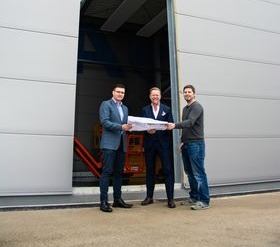In March of 2019, China shocked the world by announcing its new policy, National Sword, which ceased the importation of plastics for recycling. Executives across the consumer products recycling industry supply chain spectrum were shocked, with “Sunil Bagaria, who runs recycling company GDB International, saying. "Forever, we have depended on shipping our scrap overseas," he bemoaned. "Let's stop that." European countries, he added, "are recycling 35% to 40% [of their plastic waste]. The U.S. only recycles 10%. How tragic is that?"On top of this industry-wide shock, which hit the US particularly hard because of our dependence upon exporting our plastic waste, the recycling industry has been hard hit by the falling prices of virgin materials over the past year and dwindling beverage sales.
Despite these industry headwinds, the interest in PET recycling and technologies - bottle-to-bottle and otherwise - remains unabated. In fact, recent trends point clearly towards large-scale systems. A recycling system installed in Mexico this year is the biggest system ever built by EREMA, consisting of two Vacurema Basic T machines with a throughput capacity of 4,000 kg/h each and Solid State Polycondensation (SSP).
"The customer is planning an annual production of up to 60,000 tonnes of food contact compliant [recycled] PET. These are the largest systems we have ever built, but our order books already have an order for an even larger one, according to Christoph Wöss, business development manager at Erema Group.

Michael Heitzinger, managing director for Erema; Christoph Wöss, business development manager; and Patrich Rachinger, product group manager, at the site of the new customer center.
EREMA continues to lead the way in building the technologies behind the global circular economy, and you can read more about this story in Plastics News here.














